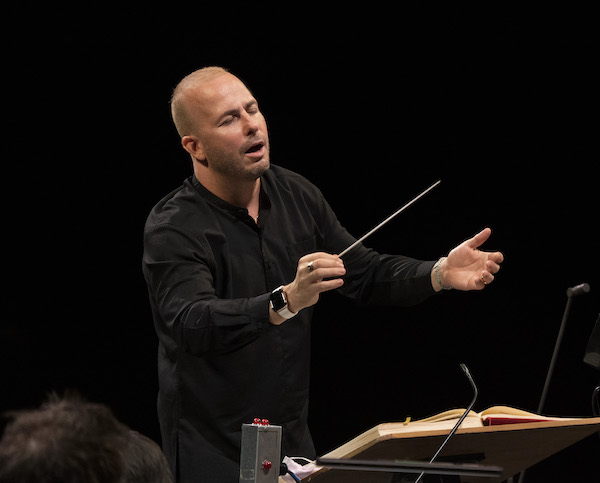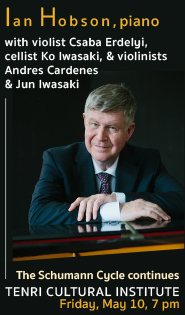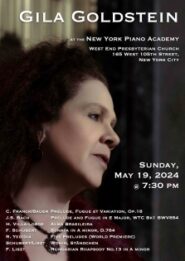Met forces bring fresh drama and expressive depth to Verdi Requiem

Jake Heggie’s Dead Man Walking may be grabbing the headlines, but Giuseppe Verdi dominates the first few weeks of the Metropolitan Opera’s 2023-24 season.
First up was the Requiem on Wednesday with Yannick Nézet-Séguin conducting the Met Chorus and Orchestra. That alone would be a draw, but the Met also assembled an exciting quartet of soloists featuring soprano Leah Hawkins, mezzo-soprano Karen Cargill, tenor Matthew Polenzani, and bass Dmitry Belosselskiy. These artists added immeasurably to the musical luster and excitement of the performance.
It was obvious when you entered the auditorium that this was going to be a big night. There was barely a vacant square foot on the Met stage; it was packed with chairs for the orchestra and places for the chorus on the risers. And indeed it was a grand evening. Hearing one of the world’s great opera choruses and orchestras perform the Requiem is always a thrill, and Nézet-Séguin and his forces did not disappoint. The surprise was that the most gentle passages of the work, made as much, if not more impact, than the explosive ones.
The performance began with the barely audible entrance of the cellos in the Introit. Their sound seemed to be suspended in midair, rather than earthbound. Just as soft, was the whispered entrance of the men of the chorus singing the word “Requiem” which followed. The repetition of “Dona eis,” which followed, were mere sighs.
Such delicate singing could be heard from the chorus throughout the performance. They would achieve greater clarity in the Dies Irae when singing the words “Salve me” and more transparency in the final pleas for eternal rest in the concluding Libera me, but without adding extraneous volume or weight. The sincerity and simplicity with which they sang the concluding “Amen” was all but overwhelming.
Verdi, however, calls upon the conductor, chorus, and orchestra to do more than provide quiet, reflective moments in the Requiem, and they summoned the requisite volume and fearsome intensity with equal mastery.
The opening cries of the Dies Irae, punctuated by the thunder of the bass drum, were terrifying. Trumpets playing from all corners of the auditorium to introduce the Tuba mirum were as sonically magnificent as they were musically thrilling. The power of the basses entering in the Rex tremendae evoked unmitigated fear. There were also wonderful displays of virtuosity, such as the fleetness and precision of the chorus singing in two equal ensembles during the Sanctus, which was mirrored in the fleet, sparkling orchestral accompaniment.
Verdi, however, placed the solo quartet at the heart of the Requiem, especially the two solo women’s voices. Leah Hawkins and Karen Cargill were simply superb, and especially effective when singing together. It is amazing that two such dissimilar voices could blend so perfectly. When Polenzani joined them in the “Quid sum miser,” it was just as fine a sound.
Hawkins had all of the volume and slice to fill out the most expansive and dramatic lines which Verdi composed for the soprano, such has in the dramatic pleas for salvation in the Libera me. She was at her most impressive, however, when she effortlessly floated phrases that were absolutely lovely and expressed emotion so to such profound effect.
Cargill’s voice is a remarkable column of sound that is even from top to bottom. It has a presence that was as impressive in the bold proclamation of the “Liber scriptus,” as it was soaring so beautifully in the moving “Lux aeterna.”
Without sacrificing the lyrical beauty of his voice, Polenzani fervently pleaded for forgiveness and deliverance in the Ingemisco. Belosselskiy’s sepulchral bass terrified in the Mors stupebit and burned with intensity in Confutatis maledictis. He was the equal of the chorus and orchestra in evoking terror when called upon to do so.
Nézet-Séguin imbued Verdi’s music with a somber beauty that encompassed all the extremes of emotion expressed in the Requiem. The intensity of the performance often stilled the audience to silence, especially in the its final, quiet measures. Through force of will, he was able to maintain that quietude for a few precious moments after the last notes had sounded.
During the ovations which followed, Nézet-Séguin called upon the Met’s chorus master, Donald Palumbo, onto the podium. Palumbo will be retiring at the end of this season after 17 years. This performance was just another example of the magnificent job he has done.
Verdi’s Requiem runs through Saturday. metopera.org






